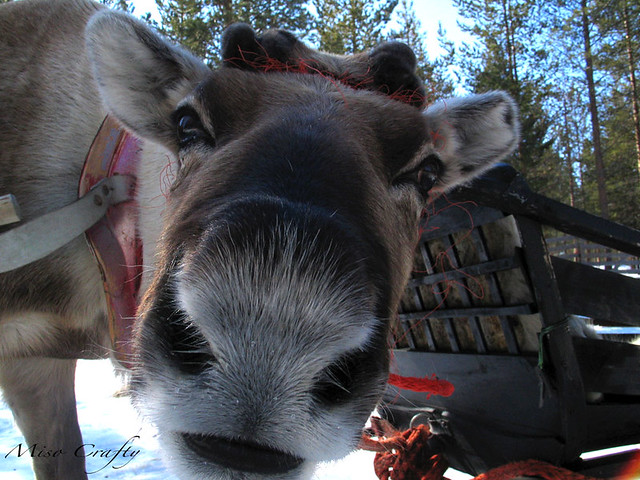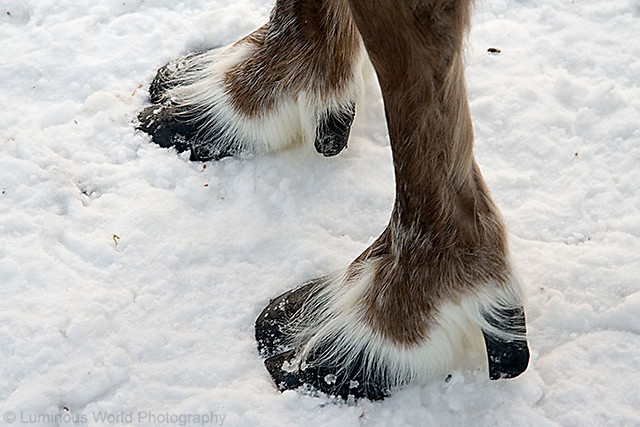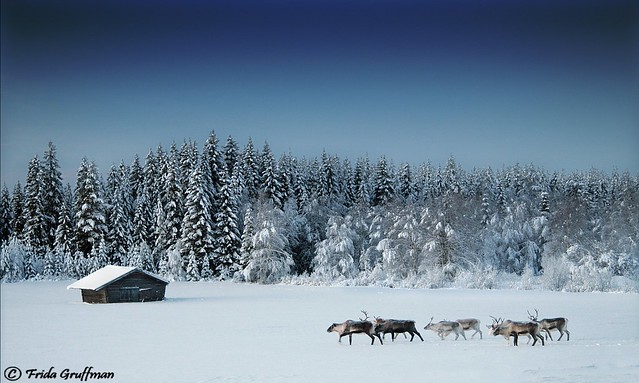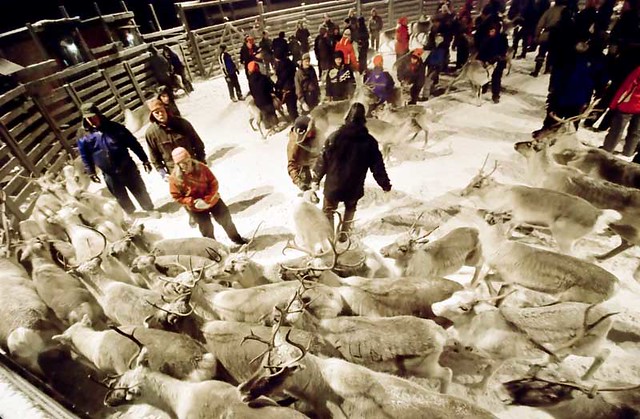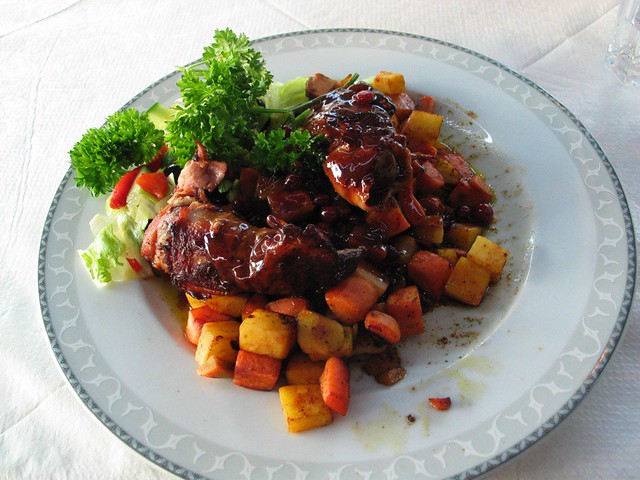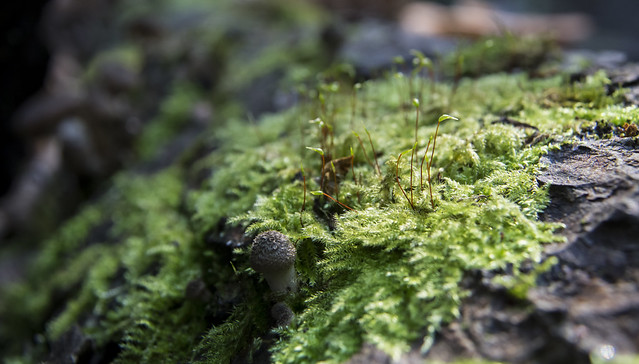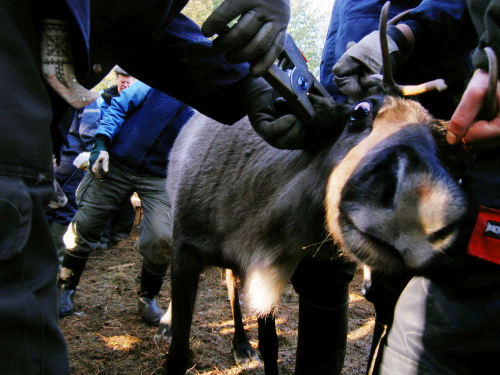It didn’t come to my mind that eating the reindeer meat in Finland is to be a pointer on the “Bucket List”. I gave more thoughts about my Bucket list after returning from Lapland. Genuinely, my wish is to see the Aurora Borealis or what most people called the Northern lights. We went all the way up to Lapland, in hope to see it. It took 8 hours from Tallinn to get to Rovaniemi Lapland. We found online predictions that the chances are high since every 11 years is the cycle. In 2014 March would be the highest occurrence.
4 Toes & Large Special Hooves
Each foot of the reindeers has four toes that spread out. This spread out feature distributes its own weight so it can float without sinking into the snow, muskeg, soft ice or wetlands. The large size of these hooves also helps them to paddle and swim in the rivers.
‘Clicking’ Knees
These large feet with footpads have extra traction and is sponge-like. In winter, the rim of the hoof is exposed and cuts into ice and crusted snow, a natural anti-slipped feature. The reindeer also use it to crater through the snow to find lichen (reindeer moss). As they move, their knees make a clicking sound.
200,000 Named Reindeers
We didn’t see that the reindeer antlers being sprayed with glow in the dark paints. However, we did see a lot of reindeers. In Lapland region, there are 200,000 reindeers, and most of them have names. According to the reindeer herder, all Finnish citizens are allowed to own reindeer in particular the area of Lapland, the northern and eastern parts of Oulu province.
Ear Marks Following Its Mother
The calves are marked by a cutting mark in the ears around mid-summer, following its mother. Each newly born calf weighs around 5kg. In autumn, they sort out those to be slaughtered and those not. Those not are given anti-parasites medication and left free in the forest. They also castrate many of the male reindeer while others are taken into domestic use. The latest time to slaughtering is New Year. 70 percent or more of the annually slaughtered reindeers are calves, those younger than one year old.
Reindeer Meat Is Very Healthy
These very tender and succulent reindeer meat are eaten and promoted to tourists. It is one of the leanest meats with omega-3 and essential fatty acids just like the fish. The average consumption by Finns is 0.5kg per person per year compared to other meat like pork, beef, chicken, sausage, wild game or horse. It has only 2% of fat content but twice as much B12 vitamin that is essential to prevent anaemia. Here is a reindeer recipe.
Lichen, Lichen, Lichen
The most common form of reindeer meat eaten in the family is poronkäristys and they like it in the form of reindeer ham slices used in wraps and for salads. Their special occasions call for whole reindeer meat. Reindeer meat is very delicious, all thanks to the diversity of herbs such as lichens in winter and green plants in summer which they have eaten in the opened forests. Lichen is rich in minerals and improves the animal’s digestion, resulting a high content in the reindeer meat of zinc, iron, selenium and B12 vitamin. It is probably why this exotic meat is very expensive.
Reindeer Sleigh Rides
The stronger reindeers undergo training like pulling the sledge. It takes approximately three years to train a reindeer. We experienced the wooden sleigh ride pulled by reindeer of about 10 minutes in a large route in the beautiful snowy forest. It was very spiritual lifting journey, experiencing the beauty of the Arctic wilderness in such a moderate speed. Sami people in Lapland are in particular aware of the environment and the wild animals protection. Every reindeer is owned and reindeer husbandry remains a major source of income for many in the Northern Lapland.
